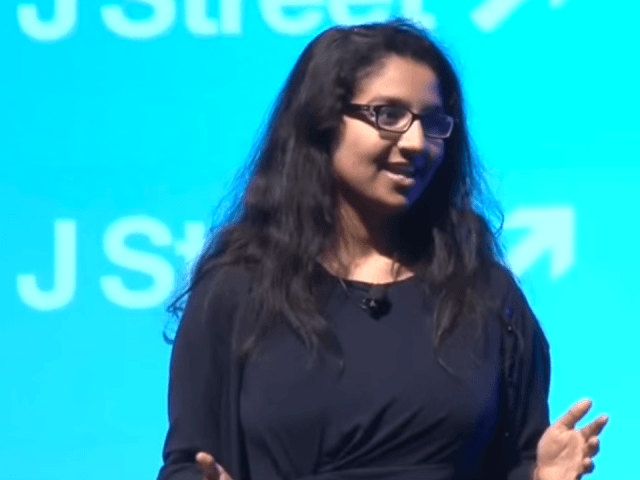J Street U, the campus wing of the larger J Street organization, has elected a Muslim student, Amna Farooqi, as president of its national board, according to reports in Ha’aretz and the Times of Israel.
It is an entirely appropriate choice, given that Farooqi’s views are hostile to the Israeli government, like those of J Street itself.
It is also a well-timed choice, given that J Street is trying to persuade Congress to back the Iran deal, to which a growing proportion of American Jews is opposed.
It confirms that J Street is not, in fact, a pro-Israel organization.
Farooqi, who comes from a pro-Palestinian background, has, admirably, studied abroad in Jerusalem, and has engaged to some degree with Jewish student groups in order to understand the other side of the argument.
In a speech to J Street’s recent national conference, Farooqi said that she had learned through her studies that Zionism was “the Jewish people taking control of their future after a history of being trampled on,” and even that she “fell in love with Zionism.”
And yet in the same talk, she disparaged Israeli Jews as racist, and slammed her fellow American students abroad as being apathetic towards Palestinians.
In fact, the only Israeli viewpoint with which she identifies is that of the radical left.
Her Twitter timeline, for example, is dominated by criticisms of Israel, and retweets of criticisms others have made. One tweet, for example, refers to Israeli Prime Minister Benjamin Netanyahu as a “douchebag.” (She does not criticize the Palestinians.)
At the national level, J Street is pushing the Iran deal even though even the Israeli opposition, which J Street backed in the recent elections, opposes the deal. J Street has also opposed Israel’s defensive wars against Hamas terrorists in Gaza, and promoted the slanderous Goldstone Report, which accused Israel of war crimes.
Since its inception, J Street U has been even less favorable towards Israel than its patron group. Though the organization denies it now, J Street U was initially reluctant to call itself “pro-Israel” at all, because that made the students “uncomfortable.”
In Israel itself, Muslim citizens enjoy equal rights, volunteer for the military, and serve in government. But unlike the American Israel Public Affairs Committee (AIPAC), which it was created to oppose, J Street identifies explicitly as a Jewish organization. (It is reluctant to identify with Israel, often shunning Israeli national symbols.)
It is not clear what commitment Farooqi has to the Jewish community, as such. And surely a Muslim interested in peace would start by advocating for it among fellow Muslims, where such voices are badly needed?
If Farooqi believes Israel is about “the Jewish people taking control of their future,” it would seem odd for her to lead a “pro-Israel” group.
But that misses the point of Farooqi’s election–and of J Street itself.
What J Street U is doing is modeling the kind of Israel in which it believes–one that is so radically egalitarian that it actually sets Jewish self-determination aside.
At a moment of real peril, when Israel faces radical Islamic terror and a fanatical Iranian regime that has attacked Jews worldwide, J Street U has chosen to emphasize that its support for Israel is conditional, at best.
A truly pro-Israel Muslim would not join J Street U, much less seek office in it. The group, and its new leader, are a good fit.

COMMENTS
Please let us know if you're having issues with commenting.